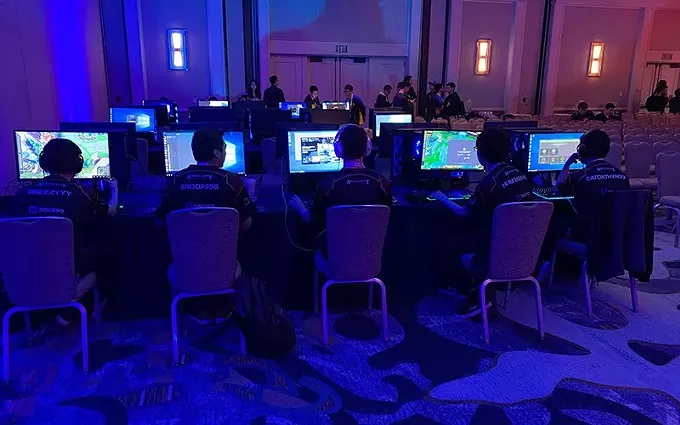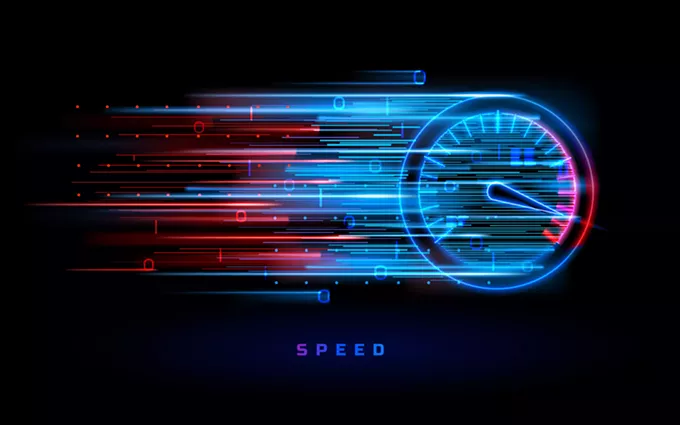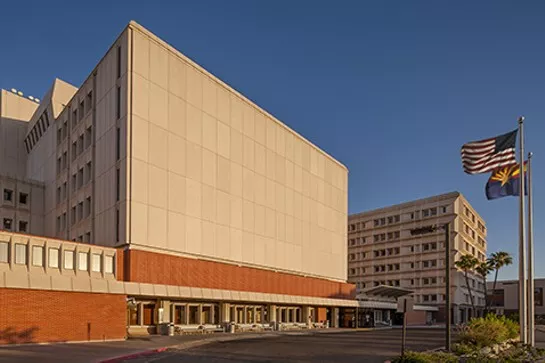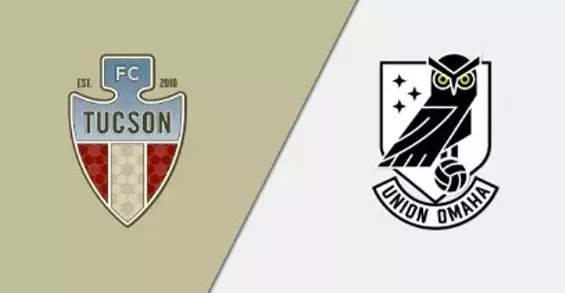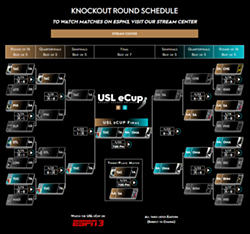Tuesday, May 18, 2021
Area organizations that help low-income families access the internet are now able to apply for free Wi-Fi.
During this year, Comcast is selecting nonprofits to benefit from its Lift Zones program, which will supply free internet access for the next three years. Boys & Girls Clubs of Tucson and the Pascua Yaqui Clubhouse were recent recipients of the service.
“Equipping our Pascua Yaqui Clubhouse with a Lift Zone has made a huge difference in the lives of the students we serve,” said Adam Ortiz, Clubhouse Director. “While some of our students have an internet connection at home, staying at home during the summer days often isn’t possible. The clubhouse is a safe space where students can come to connect to the internet, and with each other.”
Comcast is currently accepting nominations for potential Lift Zone sites across Southern Arizona. Community partners can visit arizona.comcast.com/lift-zones to learn more and nominate their organization.
“Access to the Internet is a critical component of digital equity, and we’re proud to partner with key community organizations in making that possible through our Lift Zones,” said Chris Dunkeson, Area Vice President, Comcast. “There is no single answer to address the digital divide, but we’re working hard to bridge the gap for as many students and families in our Southern Arizona service footprint as possible.”
Thursday, April 29, 2021
Black-, Indigenous- and People of Color-owned small businesses in Arizona are eligible for free technology upgrades.
Comcast is accepting applications through May 7 for "technology makeovers," according to a news release. The upgrade includes computer equipment, and internet, voice and cybersecurity services for up to 12 months. Local BIPOC-owned small businesses are encouraged to review the eligibility details and apply at: comcastrise.com/apply.
Comcast RISE - Representation, Investment, Strength and Empowerment - is part of a program that Comcast launched last summer that allocated $100 million over three years to fight injustice and inequality against any race, ethnicity, gender identity, sexual orientation or ability.
“Upon launching Comcast RISE late last year, we knew a profound need existed in many of the communities we serve. We have now seen firsthand how the program’s technology resources benefit the business owners who are working hard to rise above 2020, as well as their neighbors who share their commercial corridors, and their suppliers and customers up and down their resource chains,” said Chris Dunkeson, Comcast area vice president. “While no single organization can solve historic and systemic inequities overnight, we are committed to taking tangible actions that can drive long-term impact and change.”
Wednesday, March 31, 2021
WADDELL – Nicholas Watson, 17, has spent the past eight years fine-tuning his esports skills and playing his favorite sports-focused games, including Madden.
Now, thanks to Special Olympics Arizona and the Arizona Interscholastic Association, Watson plays Rocket League on Phoenix Canyon View High School’s unified esports team, which started its spring season earlier in March.
Unified esports is the equivalent of a high school varsity team with regular season and postseason qualifiers, and athletes are eligible to play at the same state championships as any other high school team. The difference is that unified teams are made up of students with and without intellectual disabilities who come together to create a community of acceptance.
For Watson, the team is creating community, and he’s also learning to play new games like Rocket League, a game that combines cars and soccer.
“Nicholas has so much fun that he just starts to belly laugh,” said Watson’s coach, Nick Swanson. “Like it’s just this contagious laugh when he scores a goal, and he can’t even help himself.”
Tuesday, March 16, 2021
Visitors to Downtown Tucson will again hear children laughing and playing when the Children's Museum Tucson reopens on March 25.
While the Museum may have been closed because of the COVID-19 pandemic, Executive Director Hilary Van Alsburg said that the staff has been busy working on activities, exhibits and attractions.
“We have spent the past year developing new programs, expanding our exhibits and gearing up for reopening - we are so ready for families to come back to play. Our focus is on fun engagement and welcoming families back to in-person experiences safely.”The Museum, 200 S. Sixth Ave., will be limited to one-third capacity, with timed admission at 9 a.m., 10:30 a.m., noon, 1:30 p.m. and 3 p.m. Admission is $9 per person and visitors are encouraged to purchase tickets in advance at ChildrensMuseumTucson.org. Discounts are available for military and visitors on public assistance.
Anyone 5 and older will be required to wear masks inside the Museum. The extended outdoor space and visitor limit ensure there is ample room for social distancing while allowing children to explore and play.
The Museum's other location, 11015 N. Oracle Road, will reopen on April 1. They've added a new train table, updated Toddler Town and new outdoor play activities. This Early Childhood Education-focused space will be open from 9 a.m.-3 p.m. Thursday-Sunday with limited capacity. Admission is $7 per person with advance tickets available online and discounts available.
Thursday, November 5, 2020
The IRS is warning about a new text scam that attempts to trick people into disclosing bank account information by promising they’ll receive an “Economic Impact Payment” of $1,200, according to a news release from the Internal Revenue Service.
The scam message includes a link to a fake phishing web address and reads: “You have received a direct deposit of $1,200 from COVID-19 TREAS FUND. Further action is required to accept this payment into your account. Continue here to accept this payment.”
The phishing URL leads to a fraudulent website impersonating the IRS “Get My Payment” website. If recipients of the text enter personal financial information, those behind the scam will have access to it.
“The IRS, states and industry, working together as the Security Summit, remind taxpayers that neither the IRS nor state agencies will ever text taxpayers asking for bank account information so that an EIP deposit may be made,” the release said.
IRS Commissioner Chuck Rettig said the scammers behind the texts are “relentlessly using COVID-19 and Economic Impact Payments as cover to try to trick taxpayers out of their money or identities,” according to the release. “This scam is a new twist on those we’ve been seeing much of this year. We urge people to remain alert to these types of scams.”
The IRS says anyone who receives the text scam should take a screenshot of it and email the photo to phishing@irs.gov with the following information:
Date/Time/Timezone that they received the text message
The number that appeared on their Caller ID
The number that received the text message
Those who think they qualify for Economic Impact Payment should visit IRS.gov, but the government agency will never send unsolicited texts or emails.
Wednesday, June 10, 2020
I recently flagged down a technician from my local internet provider about why the service seems so darn slow all the time. He confirmed one problem I’d always suspected. Upgrading infrastructure is expensive so a company tends to put far too many customers onto the bandwidth than can ever hope to achieve the promised upload and download speeds.
So, the first uncomfortable reality of your slow home internet is that it’s likely there’s an infrastructure problem that will not be addressed until the customer complaints reach the intolerable level.
Even after local economies return to whatever passes for normal in the near future, expect that many who went home to work during the pandemic will not return to the office, thus creating even more demand for the finite resource of internet bandwidth.
The good news is that there’s a solid chance that a few tweaks to your router and applying other tricks of the trade can speed things up considerably while you wait for your provider to crack open the wallet and undertake a full-scale upgrade.
Test Your Speed First
There’s not much point in changing anything until you know what you’re working with. That means you should test upload and download speeds to see if they happen to be anywhere near what was promised in the package you signed up for.
Once you have numbers for both your upload and download speed (the latter is typically much faster), compare them against what area providers say they deliver. Maybe you’ll be pleasantly surprised, but there’s a good chance you won’t. If your real world numbers are too far removed from your plan numbers, a phone call to the home office might be in order.
Advertised speed is usually calculated as a “best case” scenario and intended to be used as the top end of a range.
Turn Off Unused Devices
Every single internet device in your house is sipping (maybe even gulping) data at all times unless it’s turned off or the wifi capability is switched off. Wait! Don’t just speed through this suggestion as too Mickey Mouse to try. It really can help.
Tuesday, June 2, 2020
The OSIRIS-REx spacecraft launched from the Earth in September 2016 and is planned to return in 2023. The spacecraft, part of a NASA program, will collect rocks and dust from the surface of Bennu in order to better understand "the initial stages of planet formation and the source of organic compounds available for the origin of life." Since arriving at Bennu in December 2018, OSIRIS-Rex has mapped the asteroid's rocky and carbon-rich surface.
In studying Bennu, scientists have discovered that the asteroid is composed of fragments of larger bodies that shattered upon colliding with other objects. The small fragments then reaccumulated to form an aggregate body, which explains Bennu's extremely rough surface and a partially hollow interior.
Thursday, May 28, 2020
In response to the COVID-19 pandemic, Banner Health launched virtual waiting rooms for its 300 clinics across the country. The virtual waiting rooms are equipped with chatbots from the health technology company LifeLink that assist patients via text-based communication.
The normal waiting room experience, which included close proximities of patients, needed to be updated for pandemic distancing. According to Greg Kefer, Chief Marketing Officer at LifeLink, the chatbot automates the paperwork patients normally fill out while sitting in the waiting room. This process is now completed in advance.
Patients communicate with the chatbot through text messaging on any device. As Kefer explained, this makes it especially accessible because no app needs to be downloaded nor does any password need to be created or remembered.
Kefer also suggests that this new process may serve as a solution to patients who have resisted going to the doctor.
Wednesday, May 20, 2020
In many Indigenous communities, powwows are celebrations of culture in which tribes gather to share art, stories, food, song, dance and the company of one another.
But the ongoing pandemic has made it impossible to hold these gatherings safely – in person, anyways. The Navajo Nation, for example, has set curfews and asked the 173,000 tribal members living on the reservation to stay home because 142 Navajos have died of COVID-19 and 4,071 cases have been diagnosed.
Friday, April 24, 2020
For instance, NASCAR has gone online to iRacing, Formula 1 had its own virtual Grand Prix, and even boxing fought it out in a video game format.
Now, after weeks of bouts and climbing up the brackets, FC Tucson has taken its place in a head to head finalist round for the USL eCup Rocket League competition.
If you're not familiar with Rocket League, it's an online video game of soccer with some twists. Instead of people on the field, there are cars being controlled by the players. These cars also have rocket boosting ability (thus, the title of the game) that is key to getting in place at the right time to score or block a goal.
See the highlights from last night's semifinal match between FC Tucson and Tacoma Defiance, including the 200th goal of the tournament from FC Tucson.
Tags: fc tucson , soccer , football , esports , ecup , rocket league , games , Image , Video




